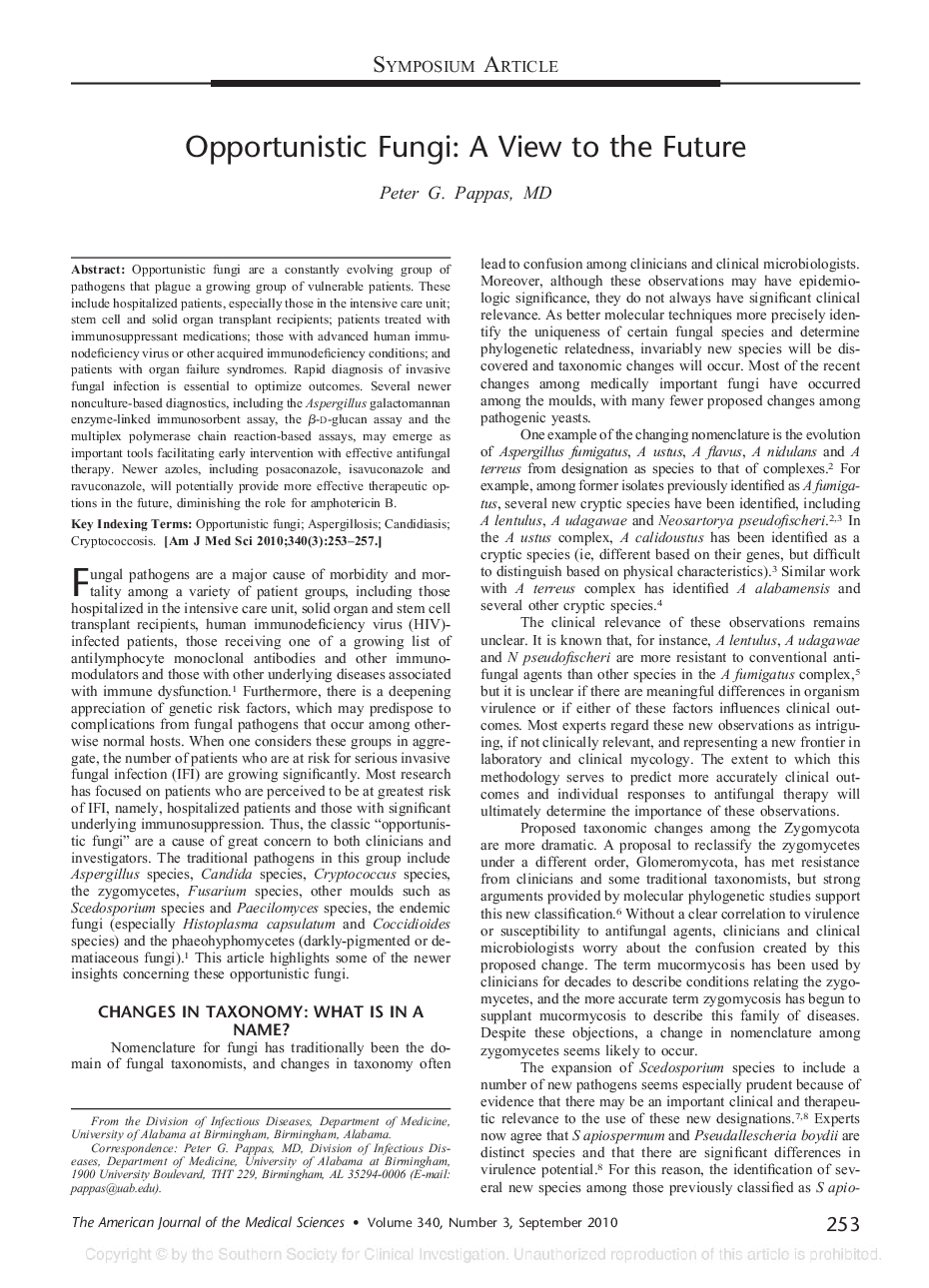| Article ID | Journal | Published Year | Pages | File Type |
|---|---|---|---|---|
| 2864380 | The American Journal of the Medical Sciences | 2010 | 5 Pages |
Abstract
Opportunistic fungi are a constantly evolving group of pathogens that plague a growing group of vulnerable patients. These include hospitalized patients, especially those in the intensive care unit; stem cell and solid organ transplant recipients; patients treated with immunosuppressant medications; those with advanced human immunodeficiency virus or other acquired immunodeficiency conditions; and patients with organ failure syndromes. Rapid diagnosis of invasive fungal infection is essential to optimize outcomes. Several newer nonculture-based diagnostics, including the Aspergillus galactomannan enzyme-linked immunosorbent assay, the β-d-glucan assay and the multiplex polymerase chain reaction-based assays, may emerge as important tools facilitating early intervention with effective antifungal therapy. Newer azoles, including posaconazole, isavuconazole and ravuconazole, will potentially provide more effective therapeutic options in the future, diminishing the role for amphotericin B.
Related Topics
Health Sciences
Medicine and Dentistry
Cardiology and Cardiovascular Medicine
Authors
Peter G. MD,
